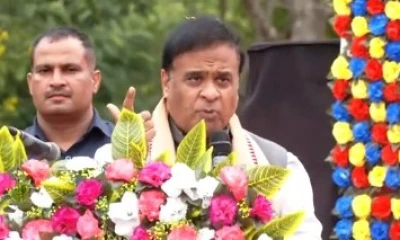Assam Chief Minister Himanta Biswa Sarma has lauded the Kolkata High Court’s recent ruling, which struck down the Trinamool Congress (TMC) government’s policy on Muslim reservations. Sarma hailed the judgment as a significant setback for both the INDI alliance and the Trinamool Congress (TMC), emphasizing its implications for constitutional integrity.
Supporting the court’s decision, Sarma criticized the concept of religious-based reservations, warning of its detrimental impact on marginalized communities like backward classes, Dalits, and tribal populations. He condemned what he perceived as the TMC, Congress, and their allies’ pursuit of vote bank politics, likening their approach to the principles espoused by Mohammad Ali Jinnah, the founder of Pakistan.
The Bharatiya Janata Party (BJP) reaffirmed its opposition to religious-based reservations, emphasizing its commitment to India’s secular principles. Sarma rallied public support, vowing a strong electoral message against these “arrogant parties.”
The Kolkata High Court’s recent ruling dealt a blow to the ruling Trinamool Congress (TMC) during ongoing elections. The court invalidated Other Backward Classes (OBCs) certificates awarded to 77 communities, mostly Muslim, since 2010, citing illegal classification.
While West Bengal Chief Minister Mamata Banerjee rejected the verdict, Union Home Minister Amit Shah criticized the Bengal government for appeasement. The decision is expected to impact around 500,000 individuals.
The division bench of justices Tapabrata Chakraborty and Rajasekhar Mantha expressed strong condemnation over the selection of 77 classes of Muslims as Backward, deeming it an insult to the entire Muslim community and implying their exploitation for political purposes.
The judgment raised concerns about the potential manipulation of communities for political gain, posing a threat to democratic principles and the integrity of the Indian Constitution.
Additionally, the court invalidated significant sections of a 2012 law that subdivided the OBC category. Among the 77 affected communities, 42 were initially classified as OBCs by the former Left Front government in 2010, while the remaining was added by the TMC government in 2012.

















